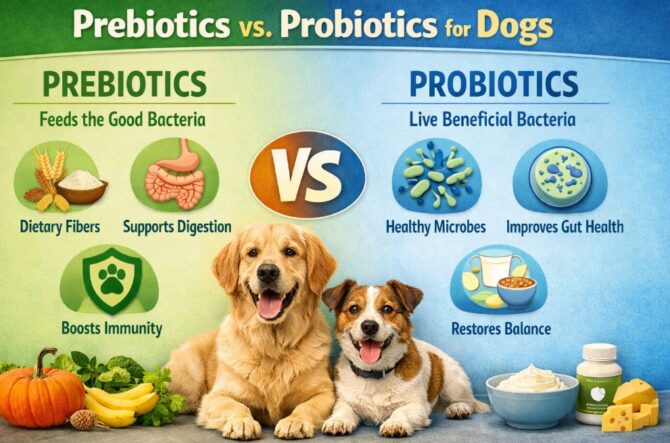Oranges, with their radiant sun-kissed color and zesty kick, have captured the hearts of many across continents. Their unique blend of sweetness and tang isn’t just a treat for the taste buds; it’s also a boon for our health.
For those of us who share our homes with furry companions, the allure of sharing our favorite snacks is hard to resist. As we relish the juicy segments of an orange, it’s natural to glance down at those eager eyes and wonder, “Could my four-legged friend safely indulge in this citrus delight?”
Can Dogs Consume Oranges?
Certainly, dogs can enjoy oranges, but it’s essential to offer them in limited quantities. While they provide valuable vitamins and minerals, they also have sugar and citric acid.
These components, especially in excess, might not sit well with some dogs, leading to digestive discomfort.
What Do Oranges Contain?
Oranges, a citrus delight, are not only low in calories and fats but also rich in essential nutrients. These include:
- Vitamin C: A vital nutrient that fortifies the immune system, helping the body ward off infections.
- Potassium: This mineral plays a crucial role in regulating blood pressure and ensuring proper muscle function.
- Fiber: Beneficial for digestive health and can aid in weight management.
The Beneficial Impact on Canine Health
Oranges, when given in moderation, can be a source of multiple health benefits for dogs. One of the primary advantages of this citrus fruit is its rich vitamin C content.
This essential nutrient plays a pivotal role in bolstering a dog’s immune system, equipping them with the necessary defenses to ward off infections and maintain overall health and longevity. In addition to immunity support, oranges are also beneficial for a dog’s digestive health.
The fruit contains fiber that supports a healthy digestive system, promoting regular bowel movements, and preventing digestive issues. Additionally, it also contains potassium, a notable nutrient found in carrots, which can be safely given to dogs.
This mineral is instrumental in regulating a dog’s blood pressure. It also plays a crucial role in muscle function, ensuring that our canine companions remain active and agile.
In essence, while oranges are often seen as a simple fruit, their nutritional profile can offer a range of health benefits for our four-legged friends.
Potential Risks for Dogs

Although oranges are generally safe for dogs to eat, there are a few potential risks to be aware of:
- Stomach upset: The sugar and citric acid can cause stomach upset in some dogs. It is important to start by giving your dog a small amount of orange to see how they tolerate it before giving them more.
- Choking hazard: The seeds and peel can be a choking hazard for dogs. It is important to remove all seeds and peel before giving your dog an orange.
- Kidney stones: Oranges are high in oxalate, which can contribute to the formation of kidney stones in some dogs. If your dog is prone to kidney stones, you should avoid giving them the fruit.
Sugar Issue
Natural sugars are present in many fruits, including oranges. While these sugars are beneficial for humans in moderation, dogs metabolize them differently.
Excessive sugar intake, even if natural, can pave the way for health issues like obesity and diabetes in dogs. If there are concerns about the sugar content or any other aspect of oranges, it’s always a good idea to consult with a veterinarian.
They can provide guidance on suitable treats and portions for individual dogs.
How to Feed Oranges to Your Dog Safely
For those considering adding oranges to their dog’s diet, here are some steps to ensure safety:
- Begin by offering a small segment and monitoring your dog’s reaction.
- Always ensure the orange is free from seeds and peel.
- Moderation is key; don’t make the fruit a daily treat.
- For dogs with a history of kidney issues, it’s best to avoid them or consult with a veterinarian before introducing them.
FAQ
Are oranges safe for all dog breeds?
While they are generally safe for most dog breeds, individual dogs may react differently. It’s always best to introduce any new food, including oranges, in small amounts and observe for any adverse reactions.
How often can I give my dog the fruit?
They should be given as an occasional treat and not a regular part of a dog’s diet. It’s essential to ensure moderation to avoid potential health issues related to sugar and citric acid.
Can the peel of the orange be used in any way for dogs?
No, the peel of the orange can be a choking hazard and may contain compounds not suitable for dogs. Always remove the peel and seeds before offering them to your dog.
Do oranges have any hydration benefits for dogs?
They have a high water content, which can provide some hydration. However, clean water should always be the primary source of hydration for dogs.
Are there any specific signs to watch for if my dog doesn’t tolerate oranges well?
If your dog experiences diarrhea, vomiting, or shows signs of discomfort after consuming oranges, it might indicate that they don’t tolerate the fruit well. In such cases, it’s best to avoid giving them oranges in the future.
Can puppies eat oranges?
Puppies can be more sensitive to new foods. If you wish to introduce the fruit to a puppy, do so in tiny amounts and monitor closely for any reactions. Always consult with a veterinarian before introducing new foods to a puppy’s diet.
Final Words
Oranges, celebrated for their vibrant hue and health benefits, are a staple in many diets worldwide. However, when it comes to our canine companions, the decision to share this citrus treat requires a bit more consideration.
While dogs can indeed benefit from the vitamins and minerals in oranges, it’s essential to be cautious of the sugar and citric acid content, which might not always agree with their digestive systems. Additionally, physical components like seeds and orange peels can pose hazards.
As with any new food introduction, moderation and observation are key. If in doubt, always consult with a veterinarian to ensure the best dietary choices for your furry friend.






